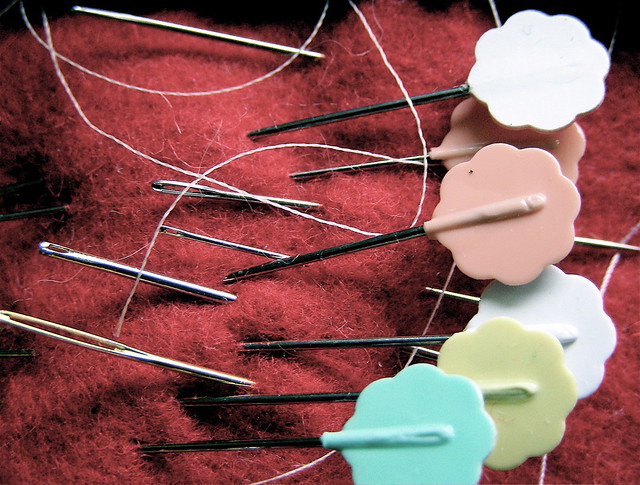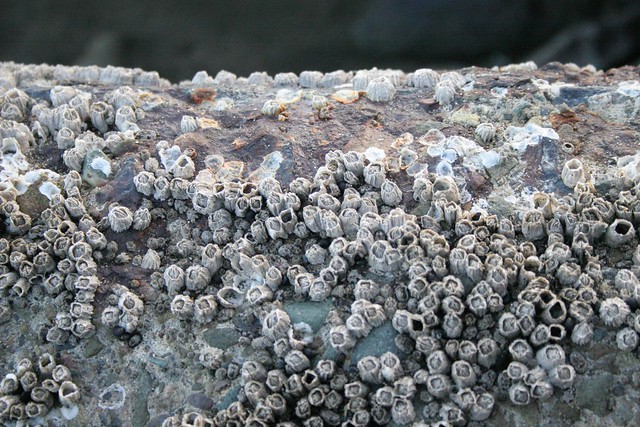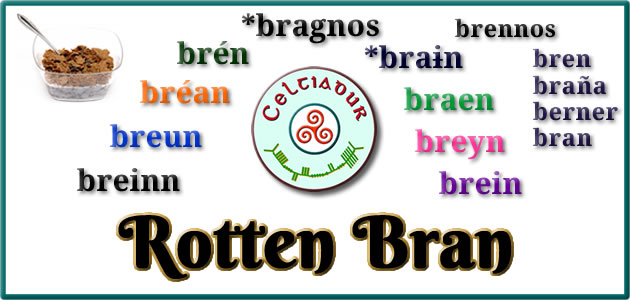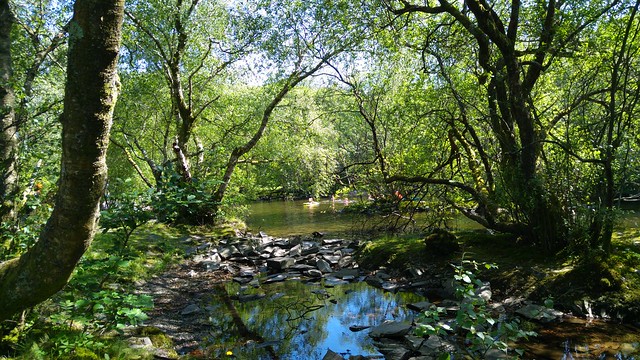Podcast: Play in new window | Download
In this episode we discover the Celtic power behind some vigorous Romance and English words.
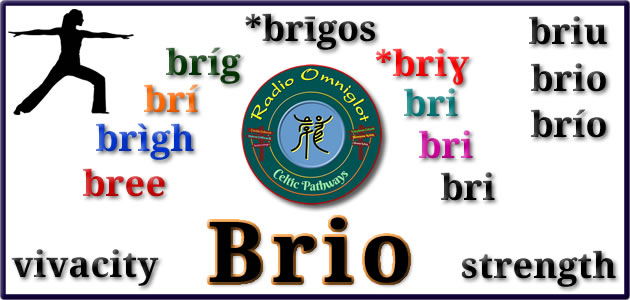
The English word brio [ˈbɹiːoʊ] means vigour or vivacity. When used in musical directions, as con brio, it means with spirit, with vigour, vivciously [source].
It comes from Italian brio (vivacity, liveliness), from Spanish brío (vigour, mettle, zest, zeal), from Old Occitan briu (wild), from Gaulish *brīgos (strength), from Proto-Celtic *brīgos (power, worth), possibly from PIE *bʰerǵʰ- (to rise; high) [source].
Related words in the modern Celtic languages include:
- brí [brʲiː] = strength, vigour; force, significance, influence or merit in Irish
- brìgh [brʲiː] = essence, gist, matter, pith, purport or substance in Scottish Gaelic
- bree = power, energy, stamina or vigour in Manx
- bri [briː] = honour, dignity, reputation, fame or prestige in Welsh
- bri = distinction, importance, relevance or reputation in Cornish
- bri [briː] = dignity or honour in Breton
Other words from the same Proto-Celtic roots include briu (energy, push, courage) in Catalan, brio (brilliance, panache) in French, and brio in Italian, brío in Spanish (as mentioned above).
Words from the same PIE roots possibly include barrow, burrow, bury, effort, force and fort in English, and brenin (king), bwrw (to hit, strike, cast) in Welsh [Source].
Incidentally, the musical direction forte (f), which indicates that a passage in music is to be played loudly or strongly, also comes from the same PIE roots, via Italian and Latin, as does the English word forte (strength, talent), though via Middle French [Source].
More about words for Strength and related things in Celtic languages.
You can find more connections between Celtic languages on the Celtiadur blog. I also write about words, etymology and other language-related topics on the Omniglot Blog.
Radio Omniglot podcasts are brought to you in association with Blubrry Podcast Hosting, a great place to host your podcasts. Get your first month free with the promo code omniglot.



